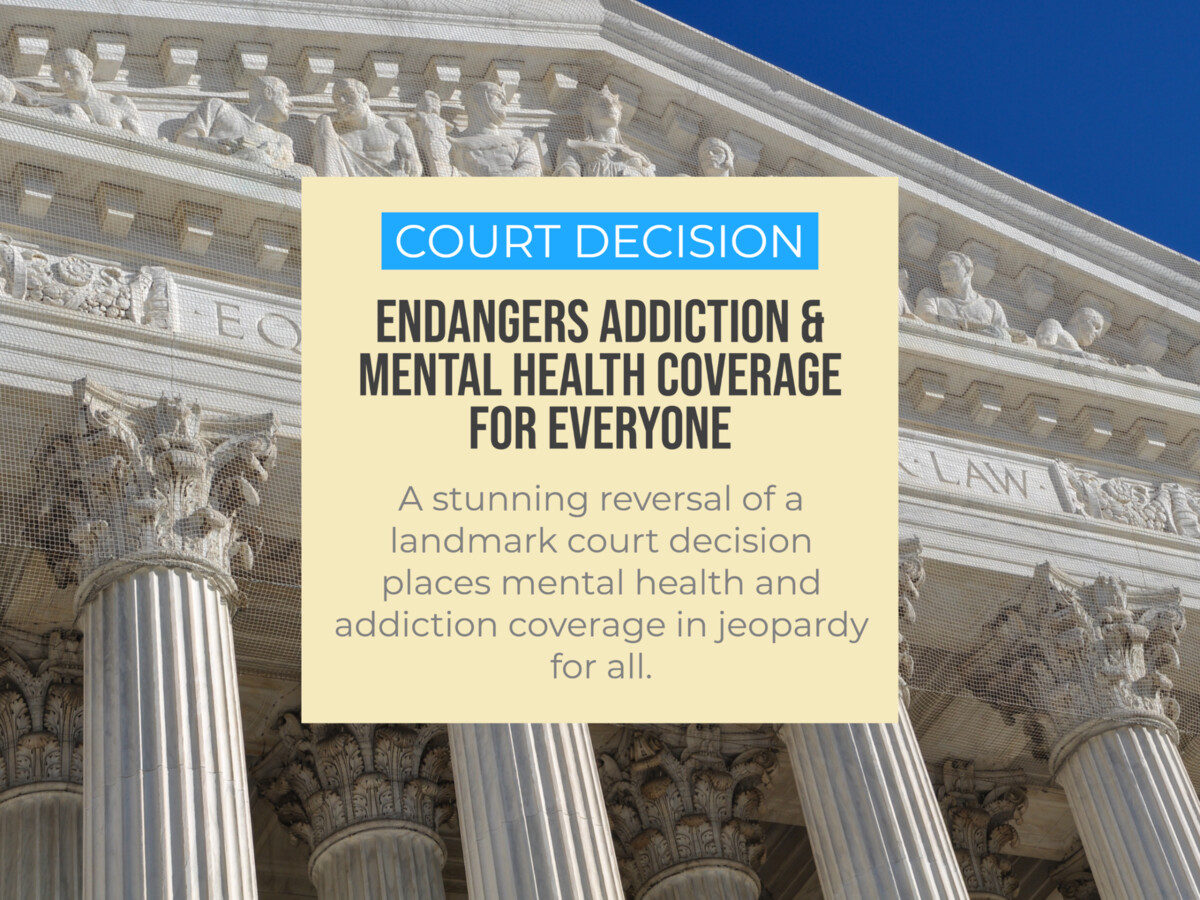Image


In 2019, the U.S. District Court of Northern California ruled on potentially the most significant health care parity case of the 21st century.
The ruling in Wit. v. United Behavioral Health (UBH) determined that the nation’s largest insurer unlawfully developed internal mental health standards of care instead of utilizing the widely accepted clinical standards of care.
The court decided that insurance companies must make “medical necessity” determinations consistent with accepted clinical standards for mental health care.
In other words, the court's ruling was a significant step toward enforcing mental health parity – ensuring insurance companies cover mental health care to the same level as physical health care.
“The only reason UBH declined to adopt [generally accepted] Criteria was that its Finance Department wouldn’t sign off on the change” – Wit V. UBH
The decision made it harder for insurance companies to deny coverage for mental health care based on arbitrary, profit-motivated, and internally developed standards of care.
The ruling sided with patients, taking an essential step in the right direction toward mental health parity.
To remedy the unlawful denials of coverage, UBH was ordered to reprocess upwards of 67,000 coverage claims for 50,000 patients (half of whom are children) in line with widely accepted clinical standards of care.
“UBH’s Guidelines were unreasonable and an abuse of discretion because they were more restrictive than generally accepted standards of care.” – Wit v. UBH
Unfortunately, in March of this year, just a few months ago, a three-judge panel in the Ninth Circuit Court of Appeals reversed the initial ruling in Wit v. UBH, stating that it is “not reasonable” for a health insurers’ coverage determination to be consistent with generally accepted standards of mental health and addiction care.
The current ruling now emboldens insurers to make decisions on mental health care coverage that are out of line with generally accepted clinical standards and hold profit above all else. The rippling effects of this stunning reversal will make mental health care harder to afford for everyone.
However, there is still an opportunity to reverse this ruling and ensure that mental health and addiction are treated in alignment with clinical standards.
A rehearing from the full 9th Circuit offers an opportunity to revisit the panel’s flawed ruling. Amidst the national mental health and addiction crisis, an en banc review (case heard by all judges of a court rather than just one) is essential.
More updates on this landmark mental health and addiction parity case to come…
Morristown Minute has been approved for the 2022 Local News Fund!*
Our reporters will be dedicating time and resources to investigating the roadblocks to mental health accessibility in our town.
Text "MORRISTOWNMH" to 53-555.
 Scan or click to donate!
Scan or click to donate!*The 2022 Local News Fund is a program administered by the Local Media Foundation, a 501(c)(3) organization affiliated with the Local Media Association. The purpose of the program is to allow independent and family-owned news organizations to solicit tax-deductible donations from their communities for journalism projects that focus on critical local issues. Contributions to this program are tax-deductible to the full extent of U.S. law; please consult a tax advisor for details.